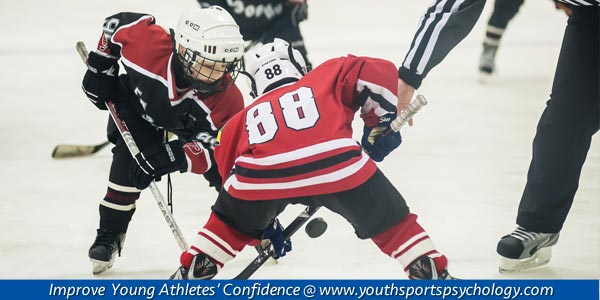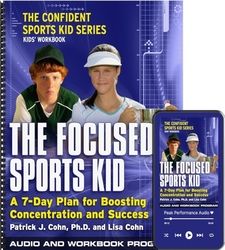External Distractions For Sports Kids
When kids are distracted by the disagreements they have with their friends, opponents or coaches, they don’t perform well in sports. They don’t enjoy it as much or learn as much.
If they’re thinking about fighting over a guy, or being angry with a friend, or disagreeing with their parents, they’re not focused on the thoughts, feelings, targets or other cues that they need to focus on to perform well.
Worse, if they’re the target of bully coaches or bully kids, they’re really distracted. Sports often become a painful experience for them.
We recently interviewed Robert Goldman, a psychologist and criminal defense attorney, about his unusual ideas for helping sports kids resolve distracting conflicts and stop the painful bullying that is rampant in sports.
Here’s what’s great about his advice:
Sports kids can apply it to all areas of their lives!
First of all, he says, most efforts to stop the teasing, taunting, and insulting that happens in sports are ineffective.
“Bullying is born out of our inability to deal with conflict and nip it in the bud. We outsource conflict to strangers, like school officials and courts. We haven’t taught our children how to resolve conflict in a more transformative way so it becomes a learning process.”
Our inability to help kids resolve conflict leads kids to use texting or social media to say things they wouldn’t say face to face, he says.
“Zero tolerance for bullying isn’t working, he says. Suspending kids from school, for example, doesn’t work. Separating the kids from each other doesn’t work, either. There’s no resolution and no closure. Eventually that student has to come back to school and the victim has to feel safe again.”
Here’s how Goldman deals with conflict:
He asks the kids to sit down together and even use a Native American “talking piece” to communicate with each other.
“They need to have a discussion about why it is happening and how to move forward. Everyone needs to take ownership for their actions.”
They also need to listen to the others’ point of view, he says.
This approach recently helped two girls re-kindle their friendship and get along–after one of them was charged with threatening to cut the other one’s throat.
Related Articles on Youth Sports:
- Helping Sports Kids with “What if” Thinking
- Helping Sports Kids Who Are Easily Distracted
- Helping Young Athletes Cope with Pregame Distractions
*Subscribe to The Sports Psychology Podcast on iTunes
*Subscribe to The Sports Psychology Podcast on Spotify
Help Your Young Athletes Improve Focus In Sports!
Are your young athletes easily distracted by people shouting on the sidelines? Do they obsess over their mistakes? Do they worry about what people think of them?
These issues will cause their concentration and performance to suffer!The Focused Sports Kid helps kids overcome distractions that can hurt their performance in sports.
The Focused Sports Kid program is actually two programs: one for sports parents/coaches that provides mental game tips especially designed for parents and coaches, and for young athletes, ages 8 to 12, that will walk them through 7 simple lessons in mental focus in sports.



I agree with Goldman’s line – He asks the kids to sit down together and even use a Native American “talking piece” to communicate with each other. Kids are not learning how to be effective communicators. This is our chance to help them at a young age to develop those ever so important skills. And once they talk it over, they usually shake hands and the problem is solved.
Hi Jeff,
Thanks for writing. I totally agree with you. This is a critical skill for kids–and they’re not learning it. Let’s hope they can start learning conflict resolution in sports and apply it to all areas of their lives.
It’s up to us adults to be good role models and insist on programs like Goldman’s.
Lisa